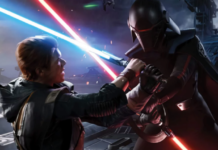For years, publishers have been looking for ways to offset the losses caused by used game sales. While no statistics have "officially" been revealed, publishers claim "millions" of dollars are lost each year when consumers purchase used games instead of new. To help make up for these losses, publishers have turned to online passes.
These passes are good for a one-time use only and usually unlock the multiplayer portion, or online portion, of a game. In some cases, as with Kingdoms of Amalur: Reckoning, a portion of the singleplayer game was barred with an online pass. Once the player enters the code it is unlocked for their account only, granting them access to the online component. If someone purchases the same game used, they will not be able to access the online component unless they purchase a separate online pass from the publisher.
Though this practice has been argued by consumers, it seems to be the most widely adopted strategy from publishers. Still, publishers complain this isn't enough to make up for the losses. But it's really the only accepted practice that we have in the industry. Until someone comes up with a better idea it looks like we are stuck with online passes.
Recently, developers have begun speaking out about online passes and possible new ideas to combat used game sales. The latest suggestion comes from Epic Games' outspoken design director, Cliff Bleszinski. In a short, but effective series of tweets, CliffyB suggested what he thinks publishers should do to help undercut used game sales. He suggests a "lite" version of games.
"I wonder publishers don't try a "lite" version of a game without an online pass that one could buy brand new for less, undercutting used," Bleszinski suggested.
"Publishers are always eager to make limited and collector's editions, why not a budget, stripped down version to get the lower end customer?"
He explained, "A "lite" version of the game could be just the SP…or just the MP. If you dig what you bought let you expand to full later via digital DL."
Bleszinski's words actually echo what Saber Interactive CEO Matthew Karch suggested to CVG in response to the possibility that Microsoft's next-gen Xbox might not play used games. Similarly, Karch suggested a digital distribution game for an overall lower price, say $30, with the singleplayer and multiplayer components broken into two separate purchases of $15 each.
The big similarity between both Karch's and Bleszinski's theories is an overall lower price for games. The truth is, $60 for a game is a lot of money for consumers to risk on something they aren't 100% sure of. With all of the overhyped duds released, $60 is a lot to gamble on a game that may not be as great as it's marketed.
While I'll never say "never", this idea seems highly unlikely. As much as I love the idea, I just don't see publishers dropping the price of games anytime soon. Then again, I don't actually know the statistics. If publishers are being hurt by used game sales as much as they say they are, then they might do something as drastic as offering the components separately. And that's not necessarily a bad thing.
Many consumers purchase games strictly for online play. For instance, a lot of people play Battlefield 3 for its online modes. That doesn't make it less of a game, it just makes the focus something else. In fact, I'd bet those who play BF3 get more gameplay time out of it then those who purchase a strict 8-10 hour singleplayer game with no multiplayer component. Most recently, Twisted Metal co-director David Jaffe said most users will spend the majority of gameplay time with online multiplayer, and suggested those looking for story would be better off renting it. How can you expect consumers to pay $60 when even you admit certain areas in the game are lacking?
The bottom line is that the price of games is just too damn high. And until publishers figure out a way to lower them to a more reasonable price, consumers will continue to look towards the used game market.







